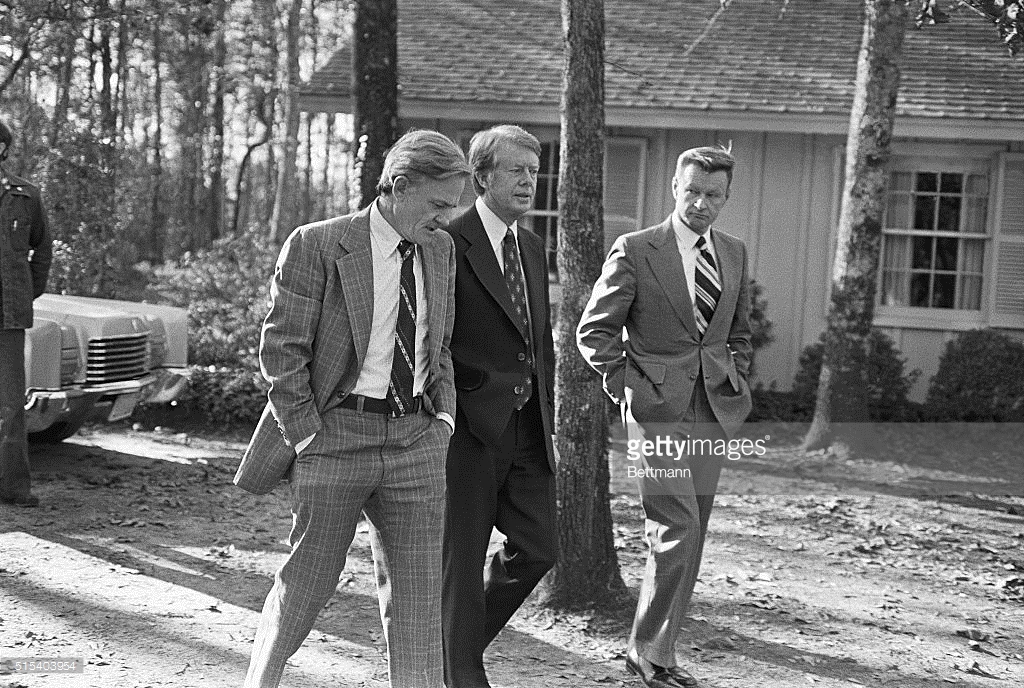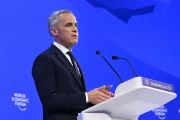 Professor Zbigniew Brzezinski is dead. Brzezinski died last night in the US at the age 89.
Professor Zbigniew Brzezinski is dead. Brzezinski died last night in the US at the age 89.
Scholars and practitioners of global politics will miss his complicated individuality that made him to be found on all scales of the good and the bad. While, like most Realists, he was a staunch opponent of US invasion of Iraq in 2003, most analysts credit him with the invention of transnational terrorism when he served as National Security Adviser to President Jimmy Carter.
On this, Mrs Hilary Clinton’s July 19, 2010 interview with Fox News’s Greta Van Susteren is taken as conclusive. She said: “To be fair, we helped to create the problem we are now fighting. Because when the Soviet Union invaded Afghanistan, we had this brilliant idea we were going to come to Pakistan and create a force of Mujahedeen and equip them with stringers and missiles and everything else to go after the Soviets in Afghanistan. And we were successful. The Soviets left Afghanistan and we said great!, good bye, leaving these trained people who were fanatical, in Afghanistan, in Pakistan, leaving them well armed, creating a mess, frankly that at that time, we didn’t really recognize. We were just happy to see the Soviet Union fall and we thought fine, we are OK. Now, everything is going to be so much better. Now, you look back. The people we are fighting today we were supporting in the fight against the Soviets”. That was basically the same thing she told the CNN.
Mrs Clinton was referring to the strategy by which Jimmy Carter undermined the Soviet Union’s invasion of Afghanistan in 1979 by forming, funding and arming the Mujahedeen, the progenitor of transnational Jihadism of today. It was Brzezinski’s idea. He himself made this clear in an interview with the French publication, Le Nouvel Observateur in January 15th, 1998.
It was after the Soviet Union hurriedly withdrew from Afghanistan that the late Osama bin Laden reportedly told his followers that there was no difference between the Soviet Union and the United States and that the United States even rated higher in his own eyes than the defunct USSR especially in relation to what he perceived as humiliation of Muslims. With such poisoned mind and the weapons the Americans left behind with the Mujahedeen in Mrs Clinton’s narrative, Osama bin Laden started working on how to bleed the West by dragging it into war in a Muslim country. This is what Abdel Atwan who used to edit the London based Al Quds Al Arabi told Aljazeera in 2013. In Atwan’s argument, it was the opportunity to bleed the West that bin Laden got when the United States launched into war in Afghanistan in 2001 and Iraq in 2003.
Both the 1991 Gulf War and the Afghan War strengthened the major shift that was already in ferment in International Relations scholarship which argued that “security is not a practice by which states defend their sovereignty but through which they construct their identity”. It is about the sharpest formulation of the loose attacks on the realist school in International Politics as no more than a collection of self-fulfilling prophecies in defence of a global order built on social Darwinism.

The twosome
So, at several levels, Brzezinski would remain a big name, nearly of co-equal status with Professor Henry Kissinger, the other American with phenomenal influence on the conceptualisation and operationalisation of foreign policy. A scholarly debate is bound to emerge about who of the two wielded greater influence or who contributed more in those respects. Both have numerous articles and books on Grand Strategy, Brzezinski’s most referenced being The Grand Chessboard: American Primacy and Its Geostrategic Imperatives, published in 1997.
Both had something to do with Harvard University as International Relations academics and both had a presidential candidate to coach into power. While Henry Kissinger’s aspirant did not make it, Brzezinski’s did in Jimmy Carter. Although Condoleezza Rice equally nurtured a presidential candidate to power, is connected to a global intellectual power house – Stanford University – and was the one who restated the quintessential Realist statement, “I am a Realist. Power matters” in the heat of 9/11 geopolitics, she does not straddle US or global politics in the scale of Kissinger and Brzezinski yet. While Kissinger exploited the Sino-Soviet split to quickly put in place the process for activating US-China relations, it was Brzezinski who completed the initiative under Carter. Whatever happens, they would remain referential in both the academic study as well as practice of world politics.




























